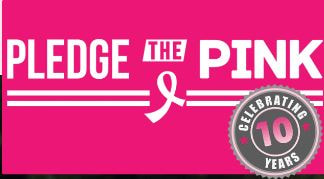
As if we don’t have enough to deal with in our lives following a cancer diagnosis and subsequent treatment – for many of us our treatments leave us with lingering questions about sexual intimacy:
- Why is sexual intercourse painful? Will the pain ever go away?
- Why don’t I have the energy for sex anymore?
- My body has all sorts of new scars, will my partner still find me attractive?
- I was treated for breast cancer – so why is intercourse painful?
- Will I ever be able to have children?
It really doesn’t matter WHAT type of cancer you have – the impact on our sexual health and well-being is significant for all survivors.
In my case as a breast cancer survivor, I encountered a few things. First of all, the chemo regimen that I was on kicked me into menopause right away. BAM! There was no gradual easing into menopause - it was sudden and irreversible. Then I started taking Tamoxifen which shut off all estrogen production and led to all sorts of changes to my body and libido. I would watch TV and see the ads for all sorts of products designed to ease the side effects of menopause and realize that if these products contained estrogen then they were off limits to me.
I remember the day that I brought the topic up with my medical oncologist during one of my visits. I was nervous to speak aloud about what I was feeling. We had never discussed sexual intimacy in any previous appointments and I was very uncomfortable about mentioning it now. I had recently helped out with a Wind River retreat for women with gynecologic cancers and sat through a session led by a pelvic floor therapist. The session opened my eyes to a whole new line of therapy that might be able to help me with my issues. I was prepared to ask my oncologist for a referral to the pelvic floor therapist at my hospital….but I was nervous. His response surprised me. He readily agreed to submit the referral but his comment to me was, “Huh…It never dawned on me that you would need help with that as a breast cancer patient.”
I got my referral and had a series of sessions with the pelvic floor therapist. But most important, I opened the dialog with my oncologist about sexual intimacy and in doing so hopefully expanded his awareness with his patients. He continues to ask me about how I’m doing with that, and he also speaks regularly with the therapist who helped me.
My situation worked out okay – but mostly because I knew what to ask for and mustered the courage to do so. What about those survivors (male AND female) who don’t know what to request or when to push? I have a dear friend who is an ovarian cancer survivor who approached her oncologist because she was having issues with low libido. Her doctor suggested she relax, take a bath, and have a glass of wine to set the mood. WHAT? Is this 1957??? Needless to say, she needed a BIT more help than that.
Next week I will share Part 2 of this discussion and give you some suggestions for getting back on track with your sex life! Stay tuned!
 RSS Feed
RSS Feed




